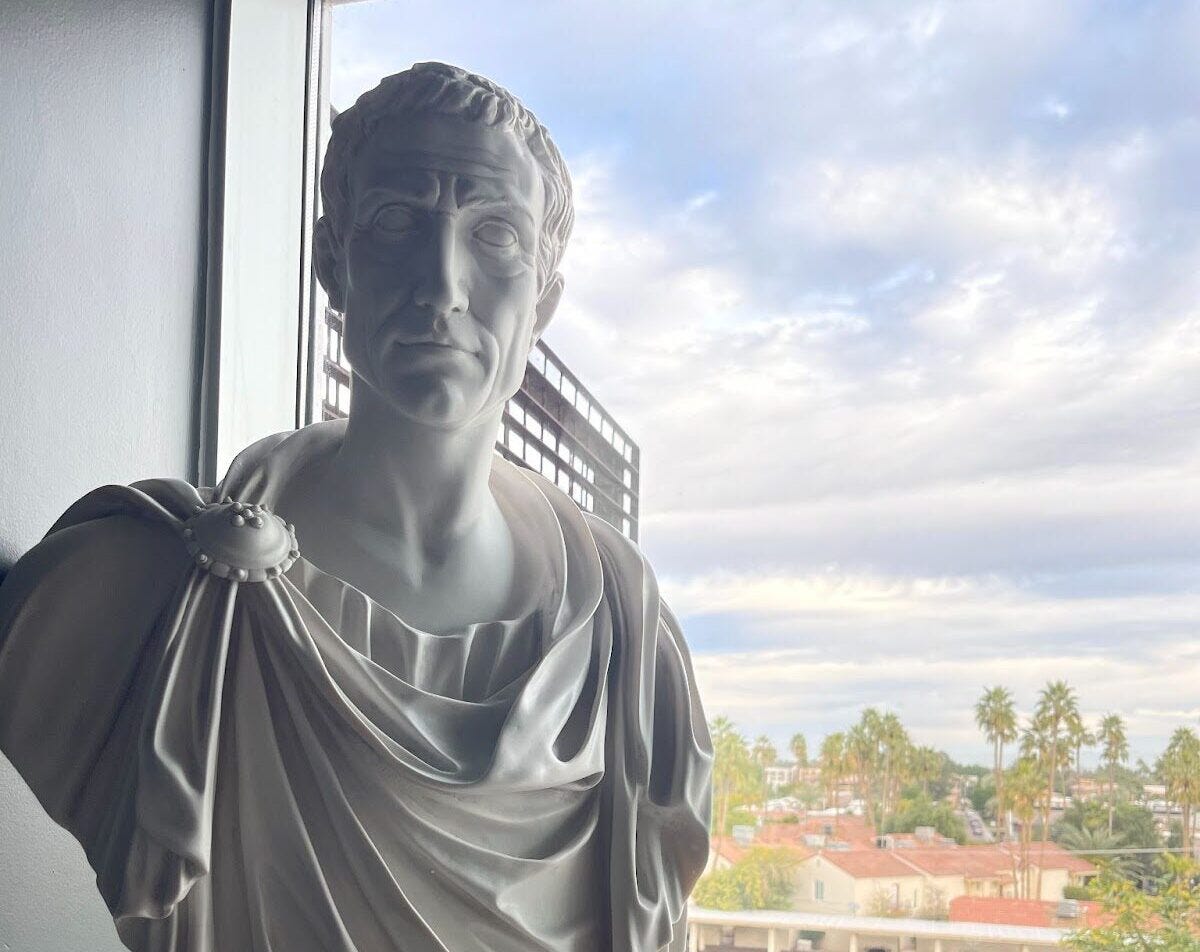February Recommended Readings
On Goldworthy's masterpiece 'Caesar: Life of a Colossus'
Caesar: Life of a Colossus by Adrian Goldsworthy
If there is a single book that taught me more than any other about Roman history, it is Adrian Goldsworthy’s masterful biographical epic on the life and times of Julius Caesar.
Published in 2008, with this book Oxford scholar Adrian Goldsworthy manages something quite rare — he tells the story of another time and place with a charity and understanding towards a civilization of a different age that matches the level of rigor and detail in his substantial research.
It is a particularly good narrative because it’s accessible and extremely well told; it is written with a general modern audience in mind, but does not condescend to that audience. It merely tells the story of one of the most engaging, dramatic, and consequential figures in history in a compelling way and with plenty of detail.
Beyond the pleasure of reading it, why did this book teach me so much about Roman history? There are several reasons, all having to do with the unique life of Julius Caesar and the crossroads moment at which he lived.
Caesar was involved in more pivotal, world-changing events than probably any other Roman — from the institution of the first triumvirate with Pompey and Crassus to the conquest of Gaul, to his civil war with Pompey and the Senate, to his adoption of his grand nephew Gaius Octavius as his heir (and the eventual founder of the principate), to the reforms of the Roman calendar that we still live with today.
His life was populated by a star-studded cast, having been shaped by and influencing many of Rome’s most famous VIPs.
His great-uncle Marius was the man who reformed Rome’s army from an amateur to a professional service and defeated the Cimbri and Teutones, two huge invading German tribes that posed existential threats to Italy. Marius’s nemesis, Sulla, persecuted Caesar and almost had him killed for refusing to divorce his first wife Cornelia, the daughter of the anti-Sullan Cinna.
Pompey the Great, Sulla’s lieutenant, would eventually become the young Caesar’s political ally, helping him to win a crucial consular election and proconsulship in Gaul in the 50s BC along with Caesar’s other important ally, Marcus Licinius Crassus — the richest man in Roman history, and one of the richest men in world history, period.
Caesar chose his allies well, but he also chose famous enemies. Cato the Younger, his most implacable enemy (with whose half-sister, Servillia, Caesar was said to be having an affair), is perhaps Rome’s most famous Stoic after Marcus Aurelius and Seneca. Cicero, who had an ambiguous relationship with Caesar and was constantly writing to him, is recognized as one of the great orators of all time.
And then there’s Antony and Cleopatra — Mark Anthony was Caesar’s lieutenant who served him dutifully in the Civil War, and Cleopatra, with him Caesar had an affair while in Egypt, was the Hellenistic Egyptian ruler who is supposed to have bourn his illegitimate child.
Another reason Caesar’s life is so rich in history is that he lived bestride a turning point in Rome — the turning point from Republic to Empire. His first marriage brought him into close contact with Sulla’s first dictatorship, which is often attributed as the point at which the Republican constitution began to break down; and his assassination by the perfidious Brutus and Cassius sounded the final death knell of a terminally ill Republic.
Julius Caesar’s family name (Caesar) to this day remains synonymous with power; it was adopted as a title of imperial status by centuries of Romans after him, the so-called “Caesars” who preferred his name to the direct title “Emperor”. As late as the 20th century, European rulers like Kaiser Wilhelm II and Tsar Nicholas II were using imperial titles that simply meant “Caesar”. The month of July remains named after Caesar, though he was born over two millennia ago.
Goldsworthy’s rendition of his life does an excellent job not only in telling the story of Caesar’s life and the pivotal events he participated in but also in explaining their significance so that a modern audience can start to understand how the events which are being described impact their own life. If you haven’t had the pleasure of reading it yet, I highly recommend it.


